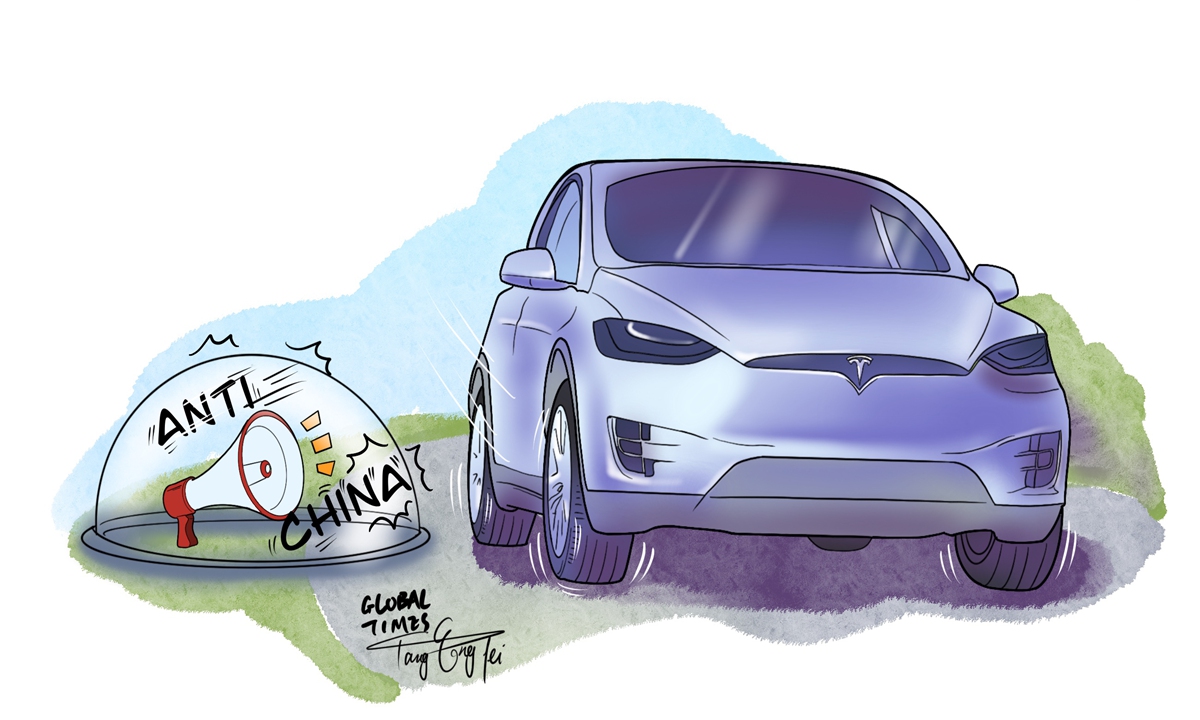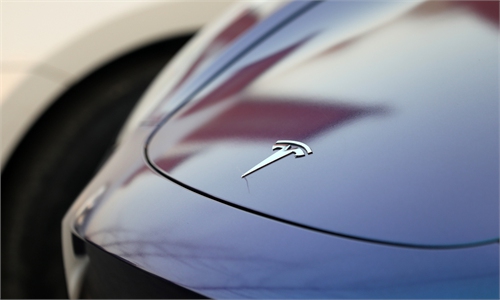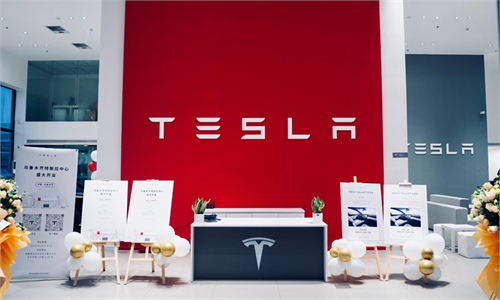COMMENTS / EXPERT ASSESSMENT
Tesla is increasingly victimized by US politicians, media

Illustration: Tang Tengfei/GT
US electric vehicle (EV) company Tesla has reportedly signed a contract with an Australian company to import graphite, a key component for EV batteries, from southern African country Mozambique. Yet, such a normal business deal to seek raw material supply from a suitable provider was interpreted by some Western media outlets as a move to "reduce reliance on Chinese supply chains".Citing an analyst from UK battery materials data and intelligence company Benchmark Mineral Intelligence, Radio France Internationale (RFI) on Tuesday said that Tesla's new agreement to import graphite from Mozambique is a move based on "geopolitical calculations".
The report said Tesla's new deal can help the US electric vehicle maker to reduce concerns among US politicians over the firm's reliance on China. For Australia's Syrah Resources, on the other hand, the contract is a good start, because Australian companies are actively seeking new markets and clients, amid escalating China-Australia tensions, according to RFI.
If Tesla's new graphite agreement was really a geopolitical move to reduce the concerns of those anti-China politicians in the US, as the RFI alleged, the company would not have opened its first electric car showroom in Urumqi, capital city of Northwest China's Xinjiang Uygur Autonomous Region, which the US government has been badmouthing.
Tesla is also far from a company preferred by Australian businesses. Tesla's Shanghai Gigafactory delivered a total of 484,130 vehicles in 2021, a year-on-year increase of 235 percent, of which more than 160,000 vehicles were exported from China to overseas markets, meeting the needs of more than 10 countries in Europe and Asia. The Shanghai plant's deliveries accounted for 51.7 percent of Tesla's total global delivery last year.
Viewed from the perspective of economic globalization rather than a geopolitical game, Tesla's supply chain is an epitome of the integrating and consolidating global supply chain. Tesla's continuous record quarterly delivery despite COVID-19 disruptions and chip supply shortage is actually a proof that the globalization trend will not be affected by US' bid to decouple from China.
Swiftly becoming the world's largest electric vehicle brand, Tesla's success story is obviously inseparable from the support of the global supply chain. Based on a full picture of Tesla's supply chain published by Chinese electronic industry information platform ittbank last October, Tesla's whole production line includes plants from the US, European countries and China, with its key components supplied from markets all over the world.
Tesla's continuous expansion of investment in China market is due to the country's continuous efforts to open up, improving the business environment and effectively providing Tesla with favorable conditions.
Ironically, in the US, Tesla faces more political pressure from a number of fellow Americans. After Tesla opened its showroom in Xinjiang, the White House threatened the US carmaker that it faces "serious legal, reputational, and customer risk."
In a recent report, Deutsch Bank warned that in 2022, Tesla, which is expected to deliver 1.5 million vehicles, is facing the major risk of chip supply shortage. The root cause of the current chip supply shortage is the US' political crackdown on Chinese tech companies. If the US government continues to neglect economic laws, arbitrarily impose political interference on US companies like Tesla, it will only produce more new problems for American companies.
The author is an editor with the Global Times. bizopinion@globaltimes.com.cn



